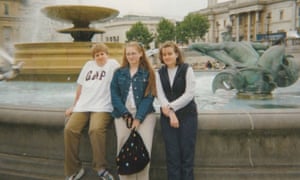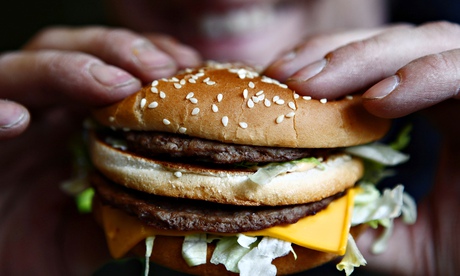Beset upon by pink fluff on all sides, like awaking to find yourself trapped in Barbara Cartland’s musty closet, we’re once more in the midst of Race for Life fundraising season. It’s an important and worthy cause, and yet many hearts (soft, kind hearts) can’t help but sink at the pinkification. “I’ll donate later – I promise” is hesitantly mumbled to beaming participants, and donations are quietly given to the main Cancer Research UK branch instead.
Does avoiding the old-fashioned-gender-cliches-for-charity’s-sake make you a monster? Or should charities receive the same criticism other publicity campaigns get when they use tired stereotyping?
Race for Life isn’t Oven Pride, obviously – it works to save lives, helping those impacted by breast cancer and building a community of support. We know this, we agree with the work. But not always so much with the gender-segregation (men are still banned from running in the races alongside women), and its core brand colour that pulses (however unfairly) with negative undertones, highlighted by such campaigns as Think Before You Pink and Pinkstinks – and the documentary Pink Ribbons, Inc.
Working to balance out Race for Life’s saccharine feather boa-and-cupcake prissiness with some grit are today’s grime-caked Pretty Muddy events, aggressive taglines such as “Hell hath no fury like a woman in pink” and adverts with Braveheart-like line-ups of women ready to run. But can there be any escaping the pink central to it all, and its associations?
After all, the rosy breast cancer awareness ribbons used by organisations such as Race for Life only came about after Estée Lauder turned originator Charlotte Haley’s peachy-orange strips to pink back in the 1990s, after researchers found the colour to be the most “non-threatening”. Ad copy can be packed to the hilt with wrath, dirt, and ferocity, but if its core colour was chosen for its non-threatening impact, then any lately adopted roughness comes across as a weak cover for still-fluffy and asinine insides.
Race for Life’s cutesy and sometimes infantile branding (Real Women Wear Mud, apparently) has a gender problem at its heart. And it’s not necessary. Just because a charity is fundraising for a gender-specific disorder or disease, it doesn’t follow that its efforts should be based around outdated gender cliches to gain support. That belongs to another time; not today, not now. In any case, breast cancer doesn’t just affect women: it’s rare, but men can have the disease too.
A counterpoint to Race for Life’s downsides, if you’re looking for some male-focused charity stereotyping, is the Campaign Against Living Miserably’s (Calm) Mandictionary initiative. “Mandictionary” – sounds just terrible, doesn’t it? Down there with the passive-aggressive phrase “man flu”: it’s that low. Bus stop posters for the campaign feature words such as Mantip (“Disposal of a drink when you’re struggling to keep up with your mates”) and Manbaggage (“A puppy [...] used by a bachelor to heighten ‘cute levels’ in parks”) – so far, so much forced machismo bullshit. But then there’s Imangination (“The capacity to believe in multiple definitions of masculinity”) and Mandown (“One of the 12 men who take their life every day in this country”).
Calm are doing something slightly more subtle – aiming to dismantle the stereotypes that men are pressured to conform to by parodying some of the most trite. Many examples are contributed via Twitter and Facebook by men who are hurt by such cliches. It’s an unexpected, clever way to highlight the harm in gender essentialism.
So how do we get more of these different approaches and voices into advertising and awareness campaigns? The IPA’s diversity quota for UK advertising, marketing and communication agencies looking to hire and promote could be one way. Before three years is up, the industry must have 40% women in senior roles and 15% of its senior people from non-white backgrounds. Prescriptive perhaps, but needed in an industry that isn’t moving quickly enough on its own.
Real charity campaigns – and successful marketing/advertising campaigns – don’t make potential contributors feel resistant and uncomfortable about engaging with them. The industry that puts them together needs new voices that we can relate and respond to. Ultimately that’s the best way to make all of us – whatever our gender or race – dip into our pockets.
Race for Life’s branding is cliched and infantile. It’s time to sink the pink | Phoebe-Jane Boyd

